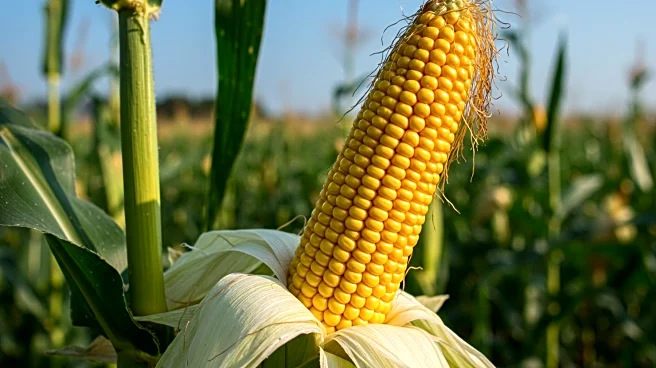What's Happening?
Researchers from the University of Nebraska-Lincoln, led by James Schnable, have collaborated with international scientists to identify genetic switches within corn DNA that influence key agricultural traits. This study, published in Nature Genetics, highlights how small DNA variations can affect traits such as drought resistance and plant height. The research utilized a new high-throughput method to map over 200,000 cis-regulatory elements in corn, providing insights into how genes are expressed in response to environmental and genetic cues. This breakthrough offers a more precise way to develop maize varieties that can better withstand climate change.
Why It's Important?
The findings have significant implications for agriculture, particularly in enhancing crop resilience to climate change. By understanding the genetic mechanisms that control important traits, breeders can develop corn varieties with higher yields and better stress resistance. This advancement is crucial for ensuring food security as environmental conditions become more unpredictable. Nebraska's leadership in maize research positions it to transform these insights into practical solutions for farmers, potentially benefiting the global agricultural sector by improving crop performance and sustainability.
What's Next?
The research team plans to further explore the identified genetic switches to refine their understanding of gene expression in corn. This could lead to the development of new maize varieties tailored to specific environmental conditions. Additionally, the study's methodology may be applied to other crops, broadening its impact on global agriculture. Stakeholders, including agricultural companies and policymakers, may take interest in these findings to support sustainable farming practices and address food security challenges.
Beyond the Headlines
This research underscores the importance of genetic diversity and precision breeding in agriculture. By focusing on regulatory regions rather than genes themselves, scientists can unlock new pathways for crop improvement. The study also highlights the role of international collaboration in advancing agricultural science, with Nebraska's expertise playing a pivotal role in these discoveries.











